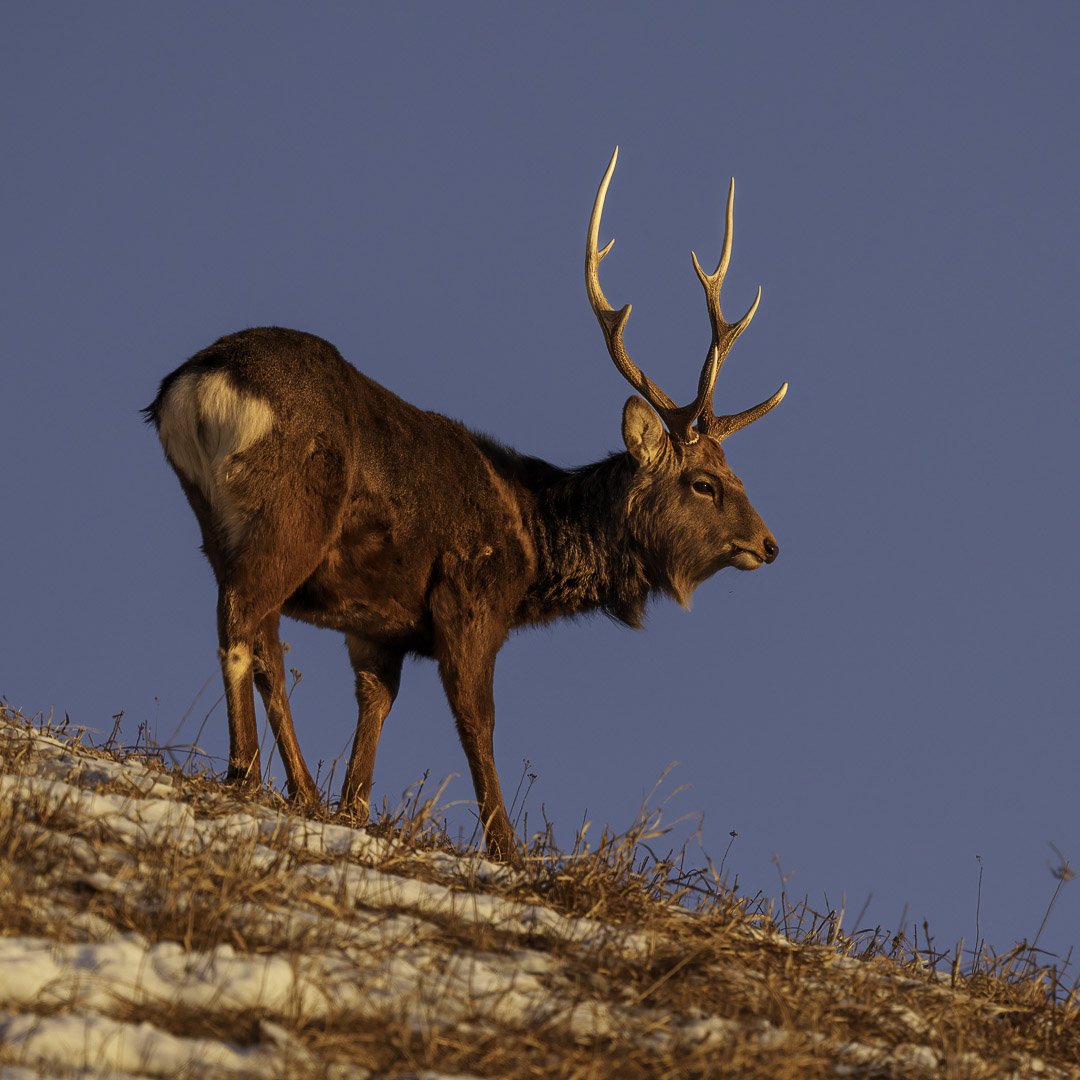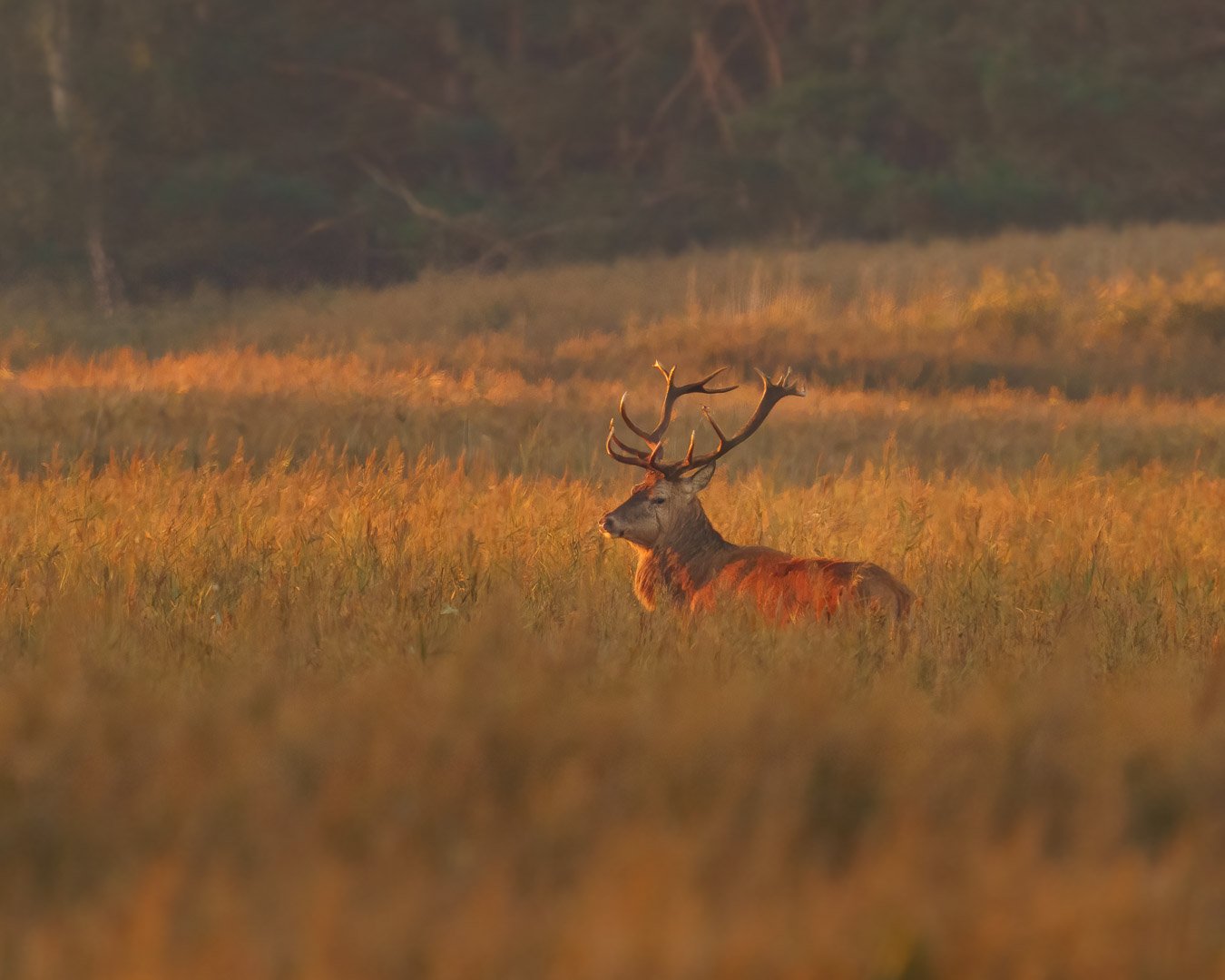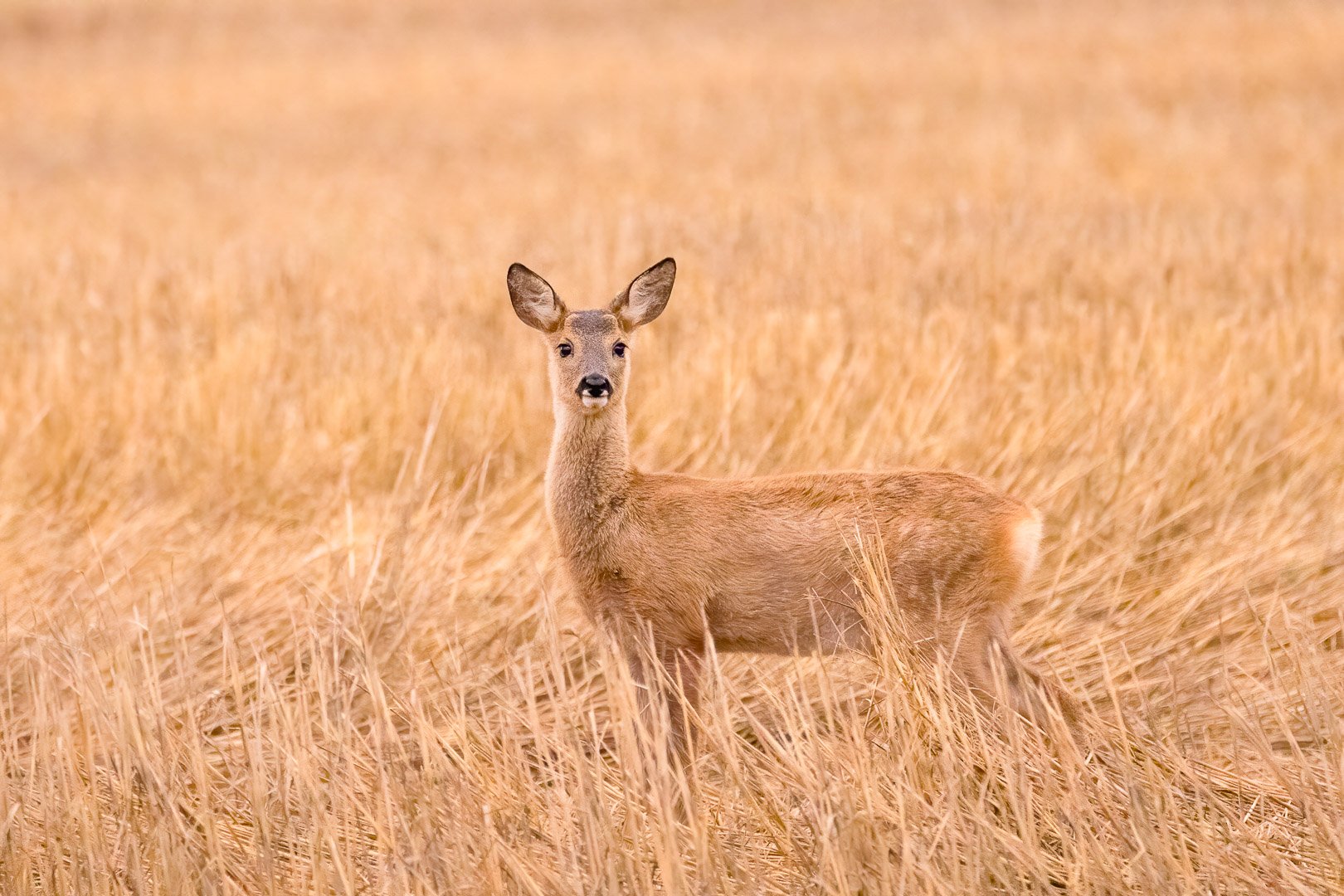
Sika deer (Cervus nippon)
The Sika deer has a distinctive fur pattern consisting of dark spots on a reddish-brown or gray-brown background. The fur is denser and warmer in winter than in summer, when it is short and smooth. Compared to other deer species, the Sika deer has relatively short and straight antlers that can grow up to 70 cm long in adult males. Females do not have antlers.

Red deer (Cervus elaphus)
The red deer (Cervus elaphus), also known as the red deer or noble deer, is a species of true deer. Its particularly large and branching antlers are highly sought after as hunting trophies among male animals. Female animals, also known as hinds or hind deer, do not develop antlers. The red deer is one of the largest free-roaming wild animals in Central Europe and prefers forest habitats. Originally, however, it inhabited open and semi-open landscapes.

Roe deer (Capreolus capreolus)
The roe deer (Capreolus capreolus), also known as the roebuck, is the smallest and most widely distributed species of deer in Europe. It is more closely related to reindeer, moose, and the American white-tailed deer than to the red deer native to Central Europe.
